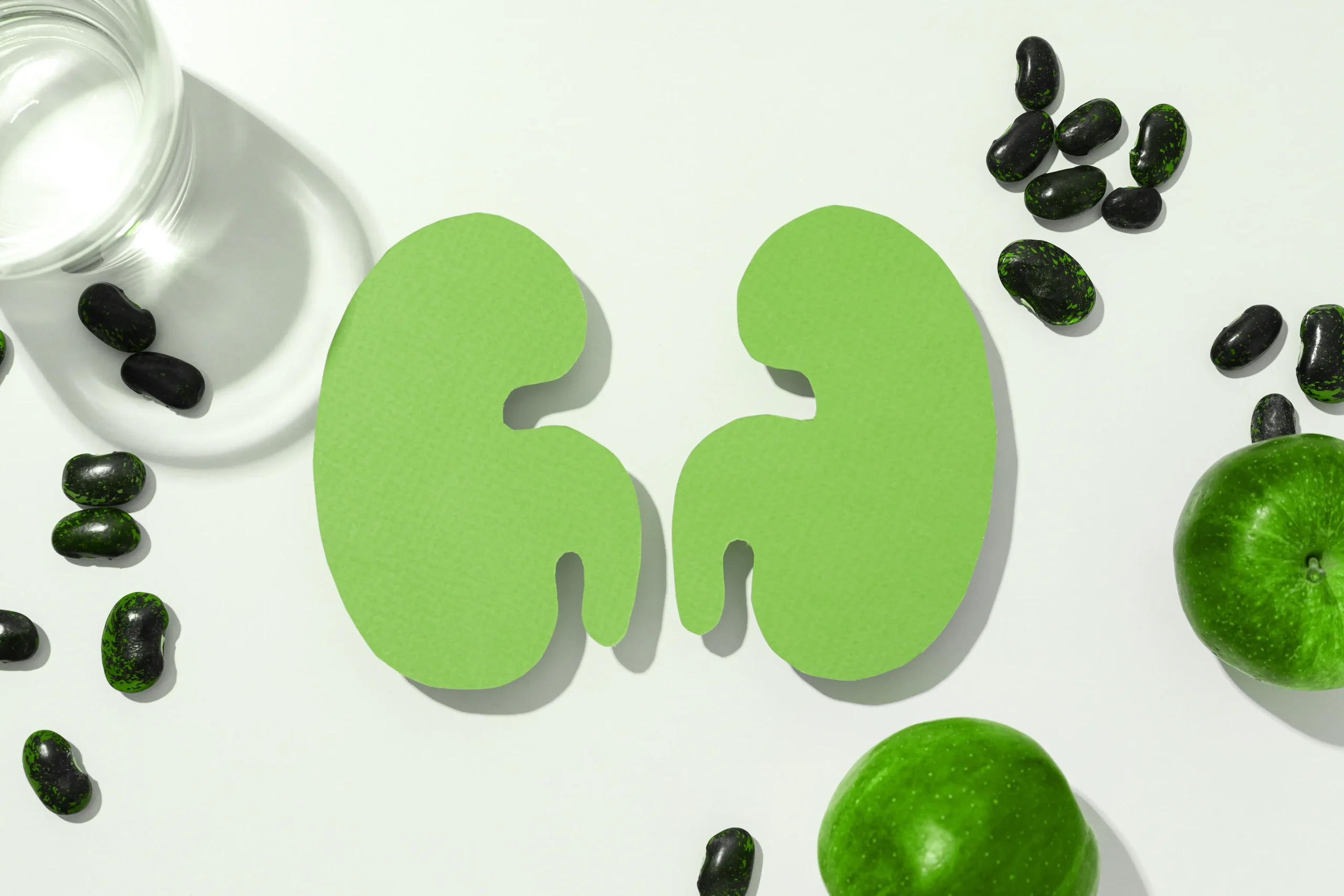The Truth about Lifestyle and Heart Disease
Heart disease is on the rise and the statistics are alarming. According to the Heart and Stroke Foundation of South Africa, 225 South Africans are killed by Heart disease daily. It seems an obvious thing to say but, if your heart cannot function properly your risk of having heart disease or even a stroke is significantly higher. No heart, no life. Above all else, 80% of all heart disease conditions can be prevented. Taking care of your heart is vital for life. Taking care of your health should be the first step in preventing heart disease and stroke. But how do you ensure your heart is healthy and operating at its best? Your lifestyle plays the biggest part. And that means diet and exercise.
You cannot be a couch potato, consuming fatty, deep-fried foods and sugary drinks all the time and expect to have a healthy heart. In fact, if your lifestyle is unhealthy, you are putting your heart under great strain and you can become overweight very quickly. On the other hand, you don’t need to be a tri-athlete to have a healthy heart. What you do need is to eat correctly and exercise. Lifestyle change is the best way to protect your heart.
Your weight affects your heart
Did you know, being overweight puts you at a 50% higher risk of having heart disease? Being overweight means your heart has to work much harder to get blood to every part of your body. If you are overweight, not only is the chances of having heart disease higher, but you can also develop diabetes, hypercholesterolemia or high blood pressure. You need to be the right weight for your height and age. This is done by calculating your Body Mass Index (BMI). Have a chat with your doctor or dietician about what your ideal weight and your BMI should be.
How does my diet affect my heart?
To start with, when we say, ‘diet’, we do not mean a crash diet over a couple of weeks. We mean your eating lifestyle. According to studies, the Mediterranean Diet is considered to be the best dietary guidelines to follow for a healthy heart and lifestyle. It consists of a large intake of fresh fruits and vegetables, predominately white meat like fish and chicken. It includes healthy fats like olive oil, nuts, and seeds. The Mediterranean diet is also considered to be high in soluble fiber with focus on whole wheat carbohydrates, beans, peas and lentils. This is the preferred diet to follow not only when one has heart disease, but also considered safe to be used by diabetic, liver disease or renal failure patients.
Your diet affects more than just the roll around your tummy. It affects everything in your body; your weight, your hormones, your organs and the way they function. Getting off the couch and being more active improves your emotional well-being as well.
Healthy food choices does not mean you will be missing out on tasty and delicious meals. Instead, embrace the change. Discovering new foods and new ways of cooking can be both exciting and healthy at the same time. You might be surprised at how delicious healthy food is.
Here are 7 tips for a healthy heart diet
1. Choose good fats over bad fats
Not all fat is bad for you. The good fats are not only tastier, but indeed good for your heart and healthy. Bad fats are considered to be fats known as saturated and trans fatty acids. These fats are well known to build up in the blood and can cause high cholesterol or even blockages within the arteries which could lead to heart disease or strokes.
Mono- and Polysaturated fats are considered to be healthy fats and can be found in olive, sunflower, or canola oil, margarines, tree nuts, seeds, peanuts, peanut butter and fatty fish such as salmon, tuna, herring, trout and sardines. These fats have been proven over the years to keep your heart healthy and can help prevent heart disease. It is therefore important to remember to never cut out all fats from your diet. Healthy fats are also known by the terms of Omega 3 or Omega 6 fatty acids. These fats have many functions in the body and they include decreasing inflammation, keeping arteries soft and maintain the health of your eyes, brain and joint health. Omega 3 and Omega 6 fatty acids cannot be produced by the body. It is essential to eat these foods to obtain the benefits they provide. Guidelines have shown that you must at least consume fish twice a week and rather use olive oil when cooking or preparing foods. Remember to never deep-fat fry any foods.
It’s also important to remember, that even a very large consumption of good fats can also be unhealthy. Use all fats in moderation.
2. Choose complex carbohydrates high in soluble fiber
Refined carbohydrates like white bread, cake, cupcakes, biscuits, pies, noodles, vetkoek, crisps are not good for your heart. These foods not only contain a large amount of bad fat, and calories contributing to weight gain. They are also very easily digested and can leave one feeling hungry very quickly or maybe even craving something sweet. Complex carbohydrates high in soluble fiber, have a very low GI, which means the food digests very slowly, making you feel fuller for longer and can curb prevent energy levels dipping during the day. Complex carbohydrates also contain fiber which has been shown to help protect your heart against heart disease. The preferred starches to eat would be brown or whole wheat bread, rice, pasta, potatoes and sweet potatoes (with the skin), fruits and vegetables, beans peas and lentils, whole grain cereals and whole grain crackers. Always remember to use these foods in moderation, as once again, even a large intake of these foods can also be unhealthy and lead to weight gain.
3. Increase your veggie and fruit intake
Enjoy a variety of fruit and vegetables on a daily basis. The national recommendations is 5 fruits and vegetables in our daily diet. They not only contain a large amount of vitamins and minerals which keep the heart healthy, but also contain lots of fiber and anti-oxidants to help protect your heart from disease and stroke. If you struggle to include these foods in your diet, start off by replacing your snacks with a fresh fruit or try and add a fruit to your breakfast by either cutting it into your cereal in the morning or adding it to your yoghurt and muesli. For supper, try to pack at least half of your plate with vegetables or salad.
4. Choose lean and fresh proteins
White meat like fatty fish, chicken and eggs have been proven to be better for your heart. The Heart and Stroke Foundation suggests that out of the 7 days a week, at least 4 days must consist of the consumption of white meat. If one does choose red meat, please choose lean cut of meat and avoid processed meats. It is also important to remember, that when you do prepare your meat to choose preparations methods that involve very little oil and no deep fat frying. Braaing, grilling, stir-frying, boiling, steaming your meat is considered to be the healthiest options. Meat should be eaten in moderation. The human digestive system is not equipped to manage large quantities of animal protein and an excess can cause severe damage to your kidneys
5. Beans are best
Beans, lentils and peas are an excellent substitute for meat. They are packed with fibre, anti-oxidants, low in fat and high quality protein. They are also considerably cheaper than meat with the same benefits (if not more) than meat. Start including these foods by adding a tin of beans when preparing stews, curries, pasta or one pot dishes.
6. To lose fat, go low fat
When choosing dairy products remember to either choose low fat or fat free dairy products like low fat (2%) or fat free milk, low fat yoghurt or sugar free yoghurt, low fat cheeses like mozzarella, fetta, reduced fat gouda and cheddar, low fat cheese wedges and low fat cottage cheese.
7. Drink more, drink less
Keep well hydrated with at least 8 glasses of fluid per day. Water is considered the best of all the fluids to drink as your body needs water in order to function correctly. Every cell in your body requires fluid. Instead of soft drinks which have large quantities of sugar or fruit juices, rather sip on water, sugar free soft drinks or sugar free cordials. You can add freshly cut lemon, mint, cucumber, apples or lemon juice to the water to give it a nice fresh flavor.
Your heart is a muscle, make it stronger
Exercise builds muscle, including your heart. A strong heart pumps less times per minute but pushes out more blood with each pump. More blood means more oxygen being pushed around your body. Your body needs oxygen to function efficiently.
Exercise also lowers blood pressure, reducing the risk of heart disease and levels of the bad cholesterol known as LDL. LDL is known to build up inside the blood and can clog your arteries causing hardening of arteries, narrowing of arteries or can even cause complete blockages. The end result is most possibly a heart attack or a stroke.
When we exercise, our bodies require more energy to function and as an effect, the body can use cholesterol (bad or good) for energy production. Exercise helps reduce cholesterol which in return with helps prevent heart disease. It is also important to remember that the heart is a muscle and if you exercise, you also strengthen your heart muscle so, it pumps better and harder and help prevent cardio vascular disease. The end result – a healthier, more active, fitter and leaner you. Exercise, combined with a healthy diet, speeds up weight loss.
If I want a healthy heart which exercise should I be doing and how often?
Walking, cycling, dancing, jogging, running and swimming are all great aerobic exercises. And aerobic is the best kind of exercise for your heart, as it makes your heart work harder, burning calories to get oxygen to your body. For a healthy active lifestyle it is recommended that you do either 45min of vigorous activity 3 times a week or a minimum of 20min moderate activity 5 times a week.
For more information or if you are unsure about what kind of diet and exercise you should be on, make an appointment with your doctor today, and always remember to Love your Heart with all your Heart.
The lenmed Group is a world-class chain of Private Hospitals that brings quality healthcare to communities across Southern Africa.
For more information please contact:
Dr M Pienaar
B.Sc Diet (UKZN) PG.Dip (UKZN)
Randfontein Private Hospital
Tel: +27 (0) 72 392 3020
Email: [email protected]
Disclaimer: Any information contained here is merely a guideline. Always visit your healthcare practitioner for any health-related advice or diagnosis.















